Wilders, the Movie (2010)
Жанр : документальный, телевизионный фильм
Время выполнения : 1Ч 18М
Директор : Joost van der Valk, Mags Gavan
Краткое содержание
A look at the Geert Wilders effect.
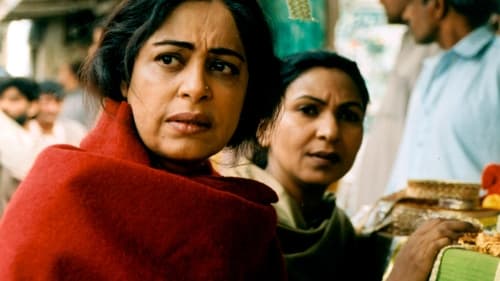
Пришедший к власти в 1979 году генерал Зия-уль-Хак установил в Пакистане военное положение, а через несколько месяцев провел исламизацию законов страны. Аиша, уравновешенная женщина лет сорока, посвятила свою жизнь образованию 18-летнего сына Салима в небольшой деревушке Чахли в Пенджабе. Салим — спокойный мечтатель, но быстро меняющаяся политическая ситуация беспокоит Аишу, так как её сын меняется до неузнаваемости.
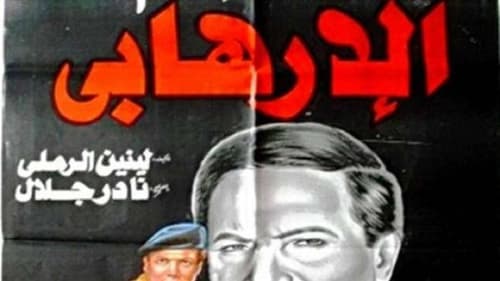
Ali Abd-El-Zaher is a member of an Islamic radical group which has been launching attacks against the government and the society under the orders of the spiritual leader Brother Saif. Ali manages to assasinate an officer, but as he escapes from the authorities he gets hit by a car driven by Sewsan, the daughter of a respected Muslim family living in the Maadi district. Sewsan's father who is a surgeon and his family take care of the injured terrorist who then tries to conceal the truth about his personality, such as his dislike of music, unveiled women and Western life styles.

WHAM! BAM! ISLAM! tells the story of Naif Al-Mutawa and his venture to create the first team of superheroes from the Muslim world called THE 99. Following the tumultuous journey of THE 99 from concept to reality, from acclaim to censure by Islam's cultural gatekeepers, from the edge of bankruptcy to plans for theme parks and an animation series, Al-Mutawa dodges cultural minefields and tries to tackle the harsh realities of the global marketplace while doggedly pursuing his vision to bring new heroes to Muslim children while re-introducing Islam to the West
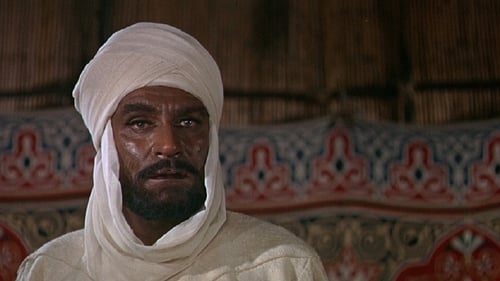
Эта приключенческая историческая драма рассказывает о поражении, нанесенном в 1883 году британским войскам арабскими племенами Северной Африки. Великолепны батальные и массовые сцены.

Houda al-Habash, a conservative Muslim preacher, founded a Qur'an school for girls in Damascus, Syria when she was just 17 years old. Every summer, her female students immerse themselves in a rigorous study of Islam, in addition to their secular schooling. A surprising cultural shift is underway-women are claiming space within the mosque, a place historically dominated by men. Challenging tradition, Houda insists education for women is a form of worship. Using Qur'anic teachings, she encourages her students to pursue higher education, jobs, and public lives, while remaining committed to an interpretation of Islam prioritizing women's role as wives and mothers. In a world rarely seen, The Light In Her Eyes tells the story of a leader who challenges the women of her community to live according to Islam, without giving up their dreams. Shot right before the uprising in Syria erupted, the film is an exclusive look at a social movement thriving in a country controlled by a repressive regime

How to combine modernity and fundamentalist Islam. "Saudi Solutions" is a unique and revealing documentary about the lifestyles and attitudes of ambitious career womenin conservative Saudi Arabia - the only country in the Arabworld where women are obliged to cover themselves inabayas and aren't allowed to drive cars. Because of the strong influence of fundamentalist Islam on society, filmingis severely restricted in Saudi Arabia. With unique access to the Kingdom, Backlight had the opportunity to film the daily routines of Saudi working women. This documentaryfeatures a top gyneacologist, a TV news anchor woman, a photographer, and a university professor. It also introducesthe wealthy Prince Al-Waleed, who passionately promotes the acceptance of women into the workforce. He kindly invitesBacklight to his luxury desert camp, but there are no women to be found - only thousands of men.

Sohail is an ambitious law undergraduate who signs up with MI5 and, eager to play a part in protecting British security, begins an investigation into a terrorist cell. His sister Nasima is a medical student in Leeds who becomes increasingly alienated and angered by Britain's foreign and domestic policy after witnessing at first hand the relentless targeting of her Muslim neighbours and peers. With action set in Pakistan, Eastern Europe, London and Leeds, both feature-length episodes detail a tragic sequence of events from two distinct perspectives. At the heart of this thought-provoking drama is a revealing examination of British Muslim life under current anti-terror legislation. Britz ultimately asks whether the laws we think are making us safer, are actually putting us in greater danger.
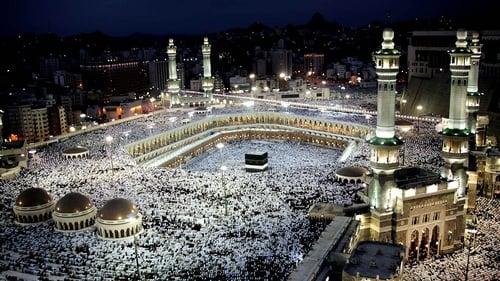
The events of the hajj have long remained veiled from non-Muslims, who are forbidden even to enter the holy city of Mecca. A team of Muslim filmmakers gained access to Islam's holiest place at the peak of the pilgrimage to document the holy event for National Geographic Television.

Filmmaker Robb Leech attempts to understand his stepbrother's journey from middle-class white boy in Weymouth to convicted terrorist. In 2010 Robb spent a year filming his stepbrother Rich after he turned his back on the world in which he grew up to become a fundamentalist Muslim called Salahuddin. Robb began filming with his stepbrother as he entered a strange new world where everyone talked about fighting jihad and implementing Sharia law. The result was Robb's acclaimed BBC Three documentary, My Brother the Islamist. When, in 2013, Salahuddin is convicted of preparing terrorism acts and jailed for six years, Robb is desperate to know what triggered his stepbrother, and others like him, to cross the line. Robb seeks out imam and psychologist Alyas Karmani to understand what drives young British-born men and women into radical jihadism. And he confronts Anjem Choudary, the man who converted Rich, about his role in Salahuddin's radicalisation

Four Belgian-Moroccan filmmakers in their thirties produce their latest film. Since adolescence they have managed to produce over thirty low-budget movies in which they often have played the main characters. Their movies are not only the sum of their fears and desires, but also a way of projecting an image of themselves towards their own community and the outside world. When one of them decides to radically change his life, their friendship and the future of their common cinema goals are threatened.

Writer and filmmaker Assia Djebar explores Algerian history, the psychological impact of war, and post-colonial female identity in this 1979 classic of film literature. Named for (and taking its structure from) a traditional song with five distinct movements, the film combines documentary-style observation with loose narrative form to tell the story of Lila, an Algerian expatriate returning to her country 15 years after independence has been won. In comparing her life with the lives and experiences of rural Algeriennes, Lila is able to put her childhood demons to rest and discover a new history -- one written in the ongoing strength of generations of women. Like much of Djebar's writing, the film has a strong subtext dealing with resistance to patriarchy and women's desire to appropriate the means of power and expression -- one of which, of course, is the filmmaker's camera.
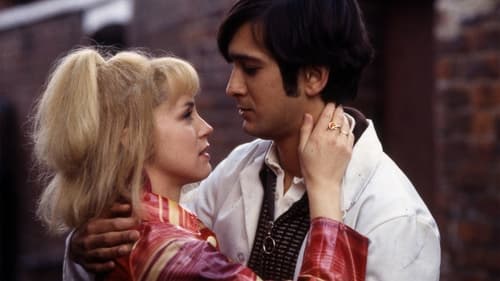
Северная Англия, 1971 год. В дискотеках крутят «Дип Перпл» и курят «травку». В моде — брюки клеш, длинные волосы и глобальная сексуальная революция.Раскованные семидесятые распахнули двери потрясающих возможностей для всех желающих, кроме несчастных героев этой картины — семерых детей не очень умного, но очень гордого эмигранта из далекой восточной страны.

Throughout the Islamic world, each year hundreds of women are shot, stabbed, strangled or burned to death by male relatives because they are thought to have “dishonoured” their families. They may have lost their virginity, refused an arranged marriage or left an abusive husband. Even if a woman is raped or merely the victim of gossip, she must pay the price. Crimes of Honour documents the terrible reality of femicide – the belief that a girl’s body is the property of the family, and any suggestion of sexual impropriety must be cleansed with her blood. We meet women in hiding from their families, a brother who describes his reasons for killing the sister he loved, and a handful of women who have committed themselves to the protection of young women in danger of losing their lives.

The richest merchant in XIX century Sarajevo and his fellow travelers are captured by a group of bandits. In order to learn more about merchant’s riches, the bandits’ leader investigates the group and discovers that merchant’s wife, who cheated on merchant during one of his travels, later – in fear of his vengeance played to be possessed by “rage”. Looking for the cure, the merchant brings his wife to Ahmed Jusuf – former warrior and man of authority. Jusuf advised the merchant to take his wife and move into another region – having an idea on what was the story behind wife’s rage, bat also in an attempt to protect himself from the feelings that have already stifled.
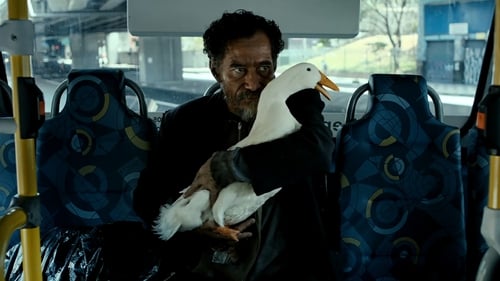
В альманахе раскрываются отношения людей разных религий с Богом.

A foreign woman in a burqa brings her young son to a Copenhagen police station to file a complaint against her abusive husband, but the translator assigned to her seems unwilling to convey the true meaning of her words. A tense, diamond-hard film about cultural isolation and bureaucratic ignorance.
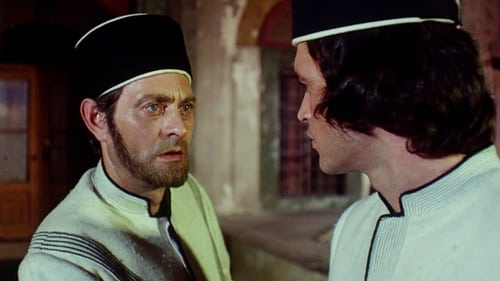
Ahmet Nurudin is a dervish and head of the Islamic monastery of the Mevlevi order in Sarajevo. He is a personification of morale and dogmatic belief, everything that Muslim religion of the Ottoman rule rests on. Throughout his life, the atmosphere of the city, the relations with the judge and the mechanism of government, the image of Ottoman Empire at the beginning of the nineteenth century is being revealed. Based on a highly praised novel by Meša Selimović.

In this sequel to "My brother the Islamist," we continue to follow Robb Leech as the tries to understand his stepbrother's journey and transformation from middle-class boy to convicted terrorist.

Turna is brought from Turkey to Germany by her husband Dursun to start a new life. She soon realizes that he keeps her locked up in their flat every time he leaves for work in order to save her from immoral influences of the Western society. The dream of a better life becomes an inner fight between her culture and her freedom.
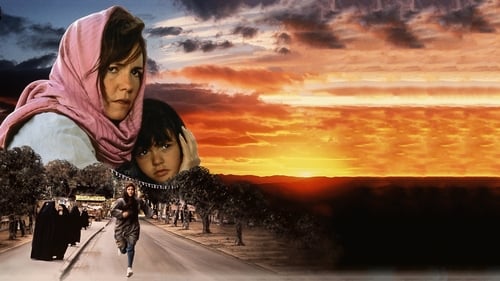
Фильм основан на реальной истории американки Бетти Махмуди, которая приезжает на Ближний Восток вместе с дочерью Шилой и мужем-иранцем. Ее муж говорит, что они просто приехали в отпуск. Но скоро выясняется, что муж Бетти - фанатичный исламист и не собирается возвращаться в Америку. Запертая в доме, Бетти притворяется, что принимает веру мужа, и убеждает его родных отпустить ее на рынок. Там она знакомится с иранцем, который соглашается ей помочь бежать вместе с дочерью.










